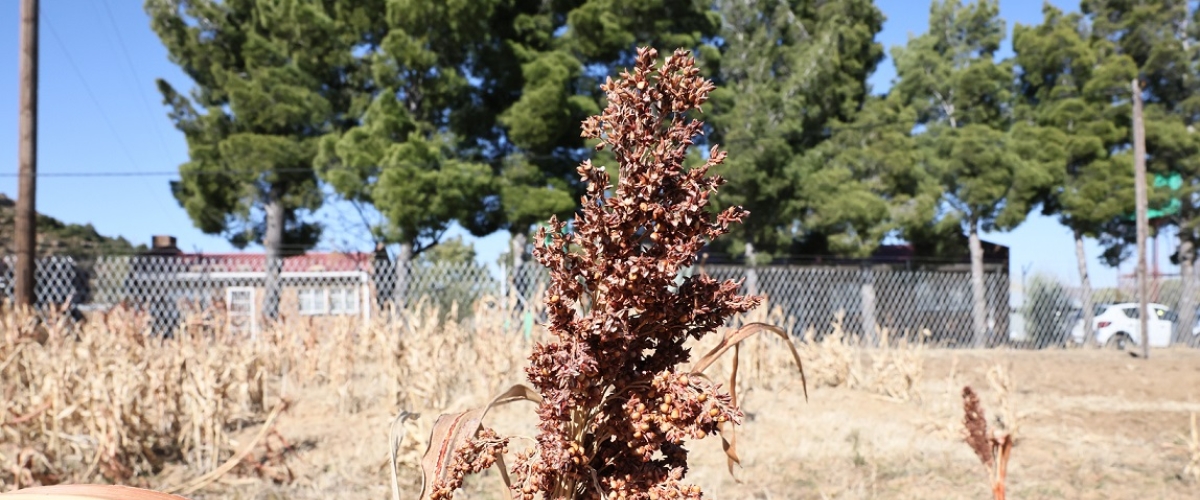
This information was shared by Dr Mpho Liphoto from the National University of Lesotho (NUL) who is the Principal Investigator for the Research and Development (R&D) sub-project under the Agricultural Productivity Programme for Southern Africa (APPSA), titled “Strengthening seed delivery systems in Angola and Lesotho – The Case of Sorghum”. This R&D sub-project has so far successfully identified at least two potential lines for Lesotho and an additional four in Angola to be recommended for the next cropping season.
Dr Liphoto is working together with Mr. Óscar Morais (Co-Principal Investigator) from the Instituto de Investigação Agronómica (IIA) in Angola to promote the availability of improved and high-quality sorghum seed amongst smallholder farmers through breeding and adaptative research.
According to Dr Liphoto, regional collaboration has been instrumental in the success of the sub-project, and this included sharing of local accessions between Angola and Lesotho; and improved lines from ICRISAT for testing and participatory selection.
In addition, Dr Liphoto said that even though sorghum is critical for food security in the SADC region, not much has been done to ensure farmers have access to good quality seed both in terms of yield and taste for human consumption.
“Sorghum productivity is getting lower because there are no suitable improved varieties that farmers can access and grow. Searching from the market shelves, we find that now the grain that we eat is no longer palatable, meaning it wasn’t meant for human consumption as such”, concluded Dr Liphoto.
APPSA is a six-year World Bank funded initiative currently implemented in Angola and Lesotho with regional oversight by the Center for Coordination of Agricultural Research and Development for Southern Africa (CCARDESA). The programme has provided Dr Liphoto and Mr. Morais with resources to adequately conduct their trials and effectively contribute towards closing the gap in the access and availability of improved sorghum seed among smallholder farmers in their respective countries.
For details, please click on the video below to watch the full interview with Dr Mpho Liphoto:






